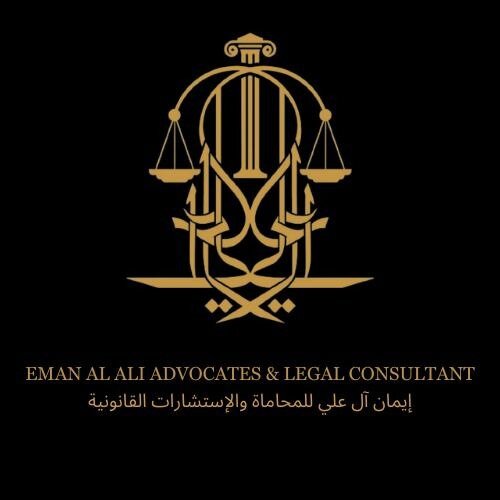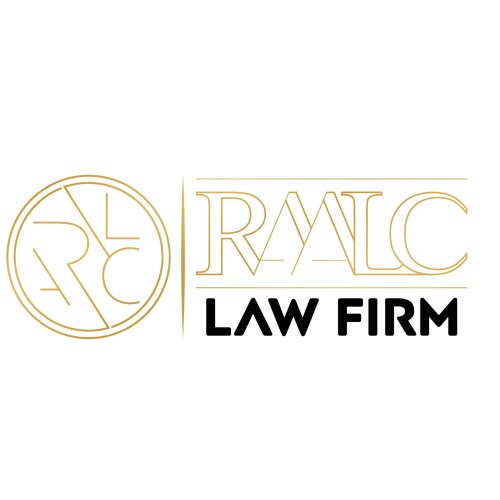Best Art & Cultural Property Law Lawyers in Dubai
Share your needs with us, get contacted by law firms.
Free. Takes 2 min.
List of the best lawyers in Dubai, United Arab Emirates

About Art & Cultural Property Law in Dubai, United Arab Emirates
Art & Cultural Property Law in Dubai, United Arab Emirates, is a specialized legal field that governs the rights, trade, and preservation of culturally significant artifacts and artworks. This area of law is critical in a global city like Dubai, which serves as a cultural hub connecting the East and West. The UAE has developed a comprehensive legal framework to protect its rich heritage and ensure that art and cultural properties are traded and exhibited legally and ethically. The Federal Law on the Protection of Cultural Heritage, among other regulations, outlines the legalities surrounding ownership, import/export, and intellectual property rights related to art and cultural items.
Why You May Need a Lawyer
Individuals and organizations may require legal assistance in Art & Cultural Property Law for various reasons. Common scenarios include:
- Acquisition or sale of art and cultural objects
- Verification of provenance and authenticity of art pieces
- Resolving disputes related to ownership and copyright issues
- Compliance with import/export regulations of cultural property
- Understanding and navigating the intellectual property rights associated with artworks
- Advice on preservation and restoration of cultural sites or artifacts
- Litigation in cases of stolen or illegally traded art
Local Laws Overview
Dubai's approach to Art & Cultural Property Law integrates both federal and emirate-level legislation, ensuring comprehensive protection and regulation of cultural assets. Key aspects include:
- Federal Law No. 11 of 2019 on Cultural Heritage: Provides protection and legal framework for handling cultural properties across the UAE.
- Dubai Culture & Arts Authority (Dubai Culture): Oversees the promotion and safeguarding of the emirate's cultural environment.
- Import and Export Regulations: Govern the legal transfer of art and cultural artifacts across borders, including stringent customs procedures.
- Intellectual Property Rights: Laws designed to protect the rights of creators and owners of artistic works, ensuring copyright and trademark protections.
- Commercial Transactions and Contracts: Legal guidelines for the sale and purchase agreements of art pieces, ensuring fairness and transparency.
Frequently Asked Questions
1. What is considered cultural property under UAE law?
Cultural property refers to items deemed of cultural, historical, or archaeological significance, including artworks, manuscripts, monuments, and artifacts.
2. Is there a legal requirement for a provenance check when buying art in Dubai?
Yes, due diligence in verifying the authenticity and provenance of art is crucial to avoid legal disputes and ensure compliance with UAE laws.
3. How can intellectual property rights protect my artwork in Dubai?
Artists can secure copyrights and trademarks to protect their creative work under UAE's Intellectual Property laws, safeguarding against unauthorized reproduction or use.
4. What should I do if I suspect the art I purchased is stolen or fake?
Consult with a legal expert in art law to examine your purchase's authenticity and provenance and guide you through any necessary legal actions.
5. Can I export a cultural artifact from Dubai?
Exporting cultural artifacts requires adherence to strict regulations and possibly obtaining permits from competent authorities to ensure legality.
6. What happens if I bring unauthorized art into Dubai?
Bringing unauthorized art into Dubai can lead to confiscation, fines, or legal action, emphasizing the need for compliance with import regulations.
7. Are there specific laws governing digital art transactions?
Digital art transactions are covered under general commercial laws and intellectual property rights in the UAE, ensuring proper legal agreements and protections are in place.
8. How is cultural site preservation managed in Dubai?
The Dubai Culture & Arts Authority manages preservation efforts, with laws ensuring the protection and maintenance of significant cultural sites.
9. Who can legally appraise art in Dubai?
Art appraisals should be conducted by professionals with legal expertise and recognition in the UAE, often working in cooperation with cultural authorities.
10. How can I resolve a dispute over art ownership?
Engage a legal professional to examine the evidence, provenance, and regulatory framework to mediate or litigate any disputes over art ownership.
Additional Resources
For further information and assistance, consider the following resources:
- Dubai Culture & Arts Authority (Dubai Culture)
- UAE Ministry of Culture and Knowledge Development
- Local law firms specializing in Art & Cultural Property Law
- Art law associations and international cultural property organizations
- The UAE Federal Customs Authority for import/export guidelines
Next Steps
If you require legal assistance in the field of Art & Cultural Property Law, it's recommended to:
- Conduct preliminary research to understand the basic legal framework and your specific needs.
- Consult with a specialized lawyer or law firm experienced in Art & Cultural Property Law in Dubai.
- Prepare all relevant documentation, including provenance records, contracts, and any communication related to your case.
- Consider mediation or alternative dispute resolution if applicable, under the guidance of your legal counsel.
- Stay informed about any changes in local or federal regulations pertaining to art and cultural property.
Lawzana helps you find the best lawyers and law firms in Dubai through a curated and pre-screened list of qualified legal professionals. Our platform offers rankings and detailed profiles of attorneys and law firms, allowing you to compare based on practice areas, including Art & Cultural Property Law, experience, and client feedback.
Each profile includes a description of the firm's areas of practice, client reviews, team members and partners, year of establishment, spoken languages, office locations, contact information, social media presence, and any published articles or resources. Most firms on our platform speak English and are experienced in both local and international legal matters.
Get a quote from top-rated law firms in Dubai, United Arab Emirates — quickly, securely, and without unnecessary hassle.
Disclaimer:
The information provided on this page is for general informational purposes only and does not constitute legal advice. While we strive to ensure the accuracy and relevance of the content, legal information may change over time, and interpretations of the law can vary. You should always consult with a qualified legal professional for advice specific to your situation.
We disclaim all liability for actions taken or not taken based on the content of this page. If you believe any information is incorrect or outdated, please contact us, and we will review and update it where appropriate.
















